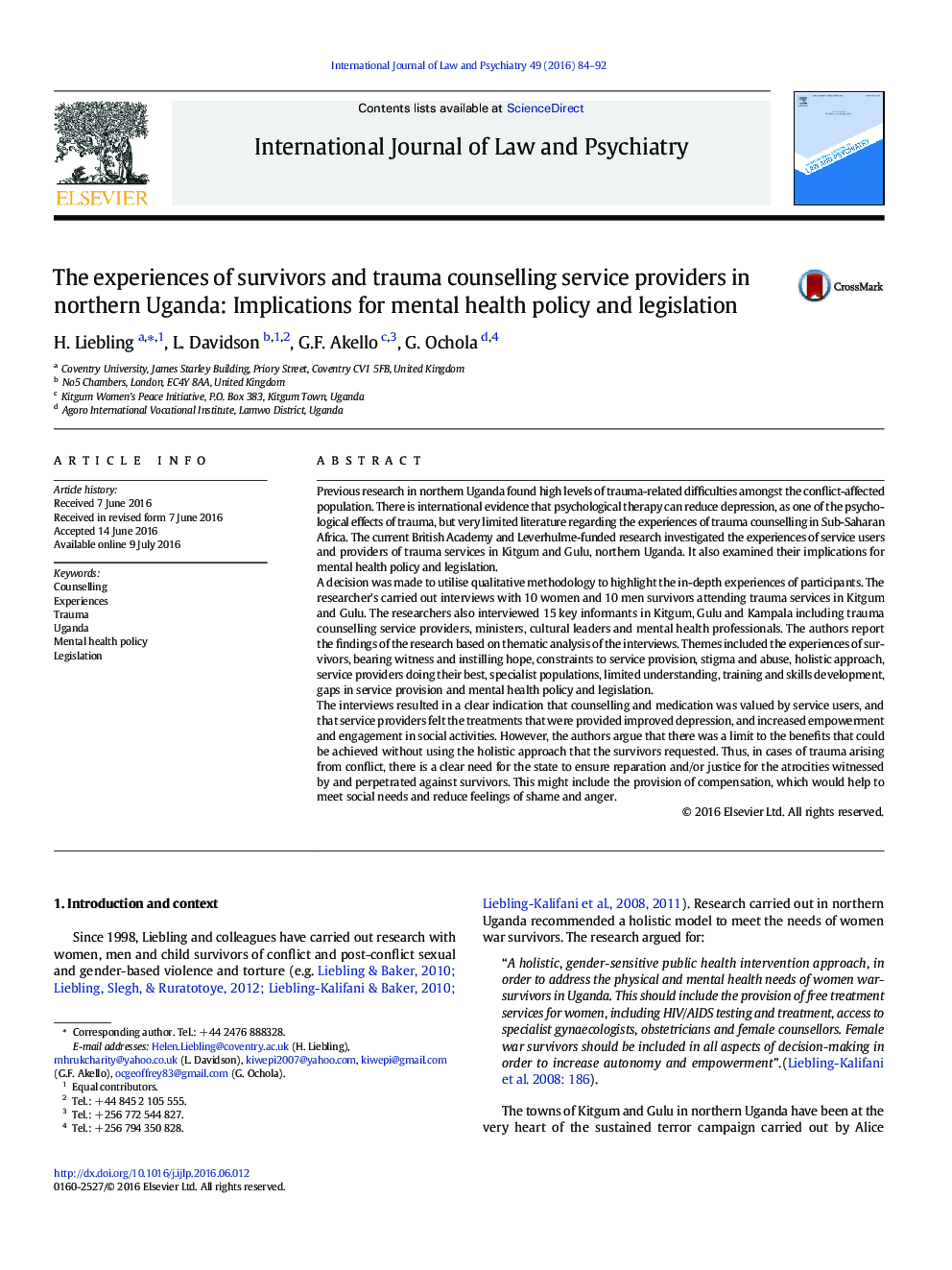| کد مقاله | کد نشریه | سال انتشار | مقاله انگلیسی | نسخه تمام متن |
|---|---|---|---|---|
| 6463003 | 1422273 | 2016 | 9 صفحه PDF | دانلود رایگان |
Previous research in northern Uganda found high levels of trauma-related difficulties amongst the conflict-affected population. There is international evidence that psychological therapy can reduce depression, as one of the psychological effects of trauma, but very limited literature regarding the experiences of trauma counselling in Sub-Saharan Africa. The current British Academy and Leverhulme-funded research investigated the experiences of service users and providers of trauma services in Kitgum and Gulu, northern Uganda. It also examined their implications for mental health policy and legislation.A decision was made to utilise qualitative methodology to highlight the in-depth experiences of participants. The researcher's carried out interviews with 10 women and 10 men survivors attending trauma services in Kitgum and Gulu. The researchers also interviewed 15 key informants in Kitgum, Gulu and Kampala including trauma counselling service providers, ministers, cultural leaders and mental health professionals. The authors report the findings of the research based on thematic analysis of the interviews. Themes included the experiences of survivors, bearing witness and instilling hope, constraints to service provision, stigma and abuse, holistic approach, service providers doing their best, specialist populations, limited understanding, training and skills development, gaps in service provision and mental health policy and legislation.The interviews resulted in a clear indication that counselling and medication was valued by service users, and that service providers felt the treatments that were provided improved depression, and increased empowerment and engagement in social activities. However, the authors argue that there was a limit to the benefits that could be achieved without using the holistic approach that the survivors requested. Thus, in cases of trauma arising from conflict, there is a clear need for the state to ensure reparation and/or justice for the atrocities witnessed by and perpetrated against survivors. This might include the provision of compensation, which would help to meet social needs and reduce feelings of shame and anger.
Journal: International Journal of Law and Psychiatry - Volume 49, Part A, NovemberâDecember 2016, Pages 84-92
